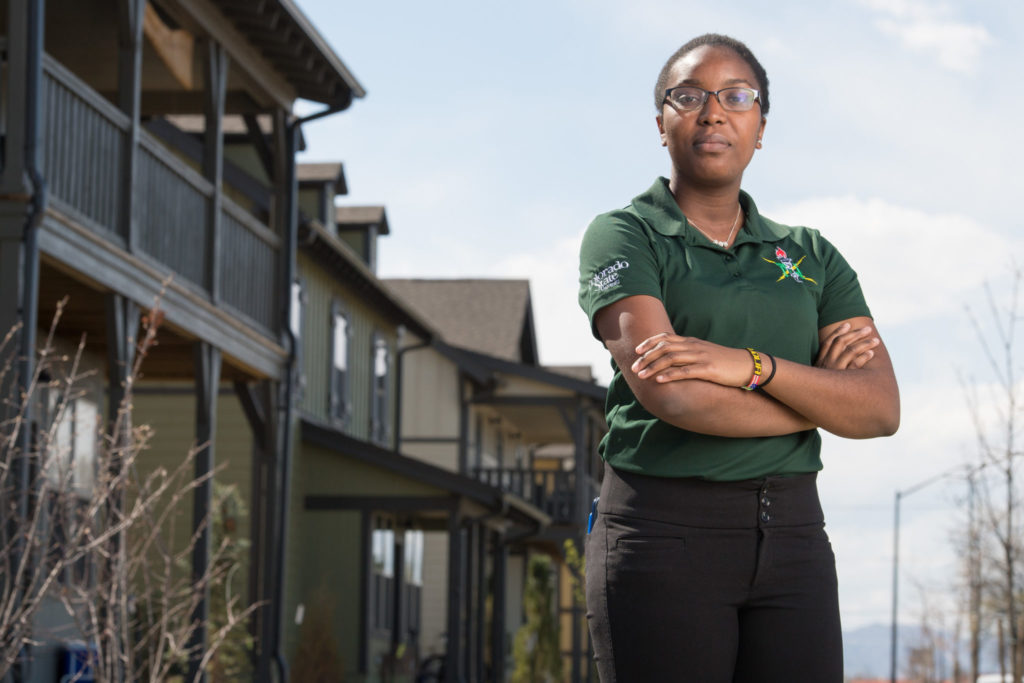
The early signs are subtle. A new coffee shop opens around the corner, then a trendy eatery here, a yoga studio there. Soon high-end apartments sprout where working-class homes once stood.
Gentrification is changing the face of urban neighborhoods, and computer science senior Augusta Irechukwu is using statistical modeling to help communities and public policy makers understand the complex process. This spring, her research took top honors at the CSU Multicultural Undergraduate Research Art and Leadership Symposium (MURALS).
Is your neighborhood next?
Research ideas can come from anywhere. Irechukwu’s project, titled “Your City Next? Predicting Gentrification Using Statistical Modeling,” was sparked by a conversation.
“One day a friend of mine was talking about how her Denver Park Hill neighborhood was changing,” she said. “People who used to live there moved out, and my friend felt new residents and the city were pushing them out.”
Her project aims to understand and predict the gentrification process. Using statistical modeling, Irechukwu compared census data research for 33 U.S. cities and determined gentrification rate changes based on race, education level, marital status, income level and occupation. The results identify correlating variables that lead to gentrification and pinpoint susceptible cities.
Noted for its important implications, the project won first place in the symposium’s Social Sciences/Humanities category, which included a $750 prize. Irechukwu was nominated for the symposium by computer science adviser Elisa Cundiff and advised by statistics instructor Ben Prytherch.
The annual daylong Multicultural Undergraduate Research Art and Leadership Symposium showcases scholarly work from students of color across campus. Participants present a research project abstract, poster and 10-minute talk. The three elements are judged separately with different criteria. Awards are given in four categories – Creative Arts, STEM, Social Science/Humanities, and Service Learning Leadership – plus overall. Students also network, receive mentoring and feedback, and learn about multicultural leadership. Supplemental workshops are offered on post-undergraduate topics such as graduate school, resume composition, and education abroad.
Getting out of your comfort zone
Students discover unexpected things at events like MURALS. Irechukwu went for the public speaking practice but found much more. She learned what research is, how computer science applies to many areas and the value of supportive environments.
“Initially, you want to win and get that prize,” she said, “but at the end of the day, you are really happy about the people you’ve met.”
Next, Irechukwu wants to perfect her statistical model, but her MURALS experience opened her eyes to an even bigger goal – impacting public policy. She is now considering graduate studies in public policy focusing on data analytics.
Her biggest takeaway from the symposium was the importance of pushing your own boundaries.
“I am grateful to Ben Prytherch, Elisa Cundiff, Bridgette Johnson and Associate Director Melissa Edwards for pushing me out of my comfort zone,” she said. “Even if you’ve never done something before – try it. Always strive to learn something new, and know there are people to help you.”